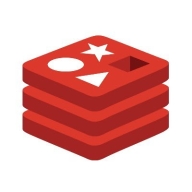

Redis and Google Cloud Firestore compete as database solutions, each offering unique benefits. Redis has the upper hand with speed and cost efficiency, while Google Cloud Firestore excels in scalability and managed services.
Features: Redis offers in-memory data structuring, provides rapid response times, and supports diverse data types. Google Cloud Firestore integrates seamlessly with Google Cloud services, ensures real-time data syncing, and incorporates robust security measures.
Ease of Deployment and Customer Service: Redis provides easy deployment and enjoys strong community support. Google Cloud Firestore offers easy scaling and is backed by comprehensive cloud platform service and support, with extensive documentation within the Google ecosystem.
Pricing and ROI: Redis is cost-effective and offers quick ROI for specific use cases with flexible hosting options. Google Cloud Firestore may involve higher costs but offers significant ROI due to advanced features and reduced operational needs through its managed services.
| Product | Market Share (%) |
|---|---|
| Redis | 8.9% |
| Google Cloud Firestore | 2.3% |
| Other | 88.8% |


| Company Size | Count |
|---|---|
| Small Business | 11 |
| Midsize Enterprise | 3 |
| Large Enterprise | 8 |
Google Cloud Firestore is a scalable, real-time NoSQL cloud database that provides document-oriented data storage and synchronizes data seamlessly across devices.
Designed for mobile, web, and server development, Firestore allows developers to store and sync data quickly. It supports real-time updates which enable your applications to reflect changes instantly. Firestore is based on a managed infrastructure, relieving developers from server-side maintenance and scalability concerns. It integrates with other Google Cloud services making it a convenient choice for modern app development.
What are the key features?Firestore is widely used in industries like retail, where apps require real-time inventory tracking and customer insights. In health tech, it's utilized for patient data management, ensuring real-time updates across platforms while adhering to security protocols. Educational tech companies implement the database to provide an interactive learning experience with live collaboration features.
Redis offers high-speed, in-memory storage, renowned for real-time performance. It supports quick data retrieval and is used commonly in applications like analytics and gaming.
Renowned for real-time performance, Redis delivers high-speed in-memory storage, making it a favorite for applications needing quick data retrieval. Its diverse data structures and caching capabilities support a broad array of use cases, including analytics and gaming. Redis ensures robust scalability with master-slave replication and clustering, while its publish/subscribe pattern renders it reliable for event-driven applications. The solution integrates smoothly with existing systems, minimizing performance tuning needs. Although documentation on scalability and security could be improved, Redis remains cost-effective and stable, commonly utilized in cloud environments. Enhancing integration with cloud services like AWS and Google Cloud and refining GUI may improve usability.
What are the key features of Redis?Redis finds application across industries for tasks like caching to improve application performance and speed, minimizing database load. It enables real-time processing for session storage, push notifications, and analytics. As a messaging platform, Redis handles high traffic and supports replication and clustering for cross-platform scalability.
We monitor all NoSQL Databases reviews to prevent fraudulent reviews and keep review quality high. We do not post reviews by company employees or direct competitors. We validate each review for authenticity via cross-reference with LinkedIn, and personal follow-up with the reviewer when necessary.